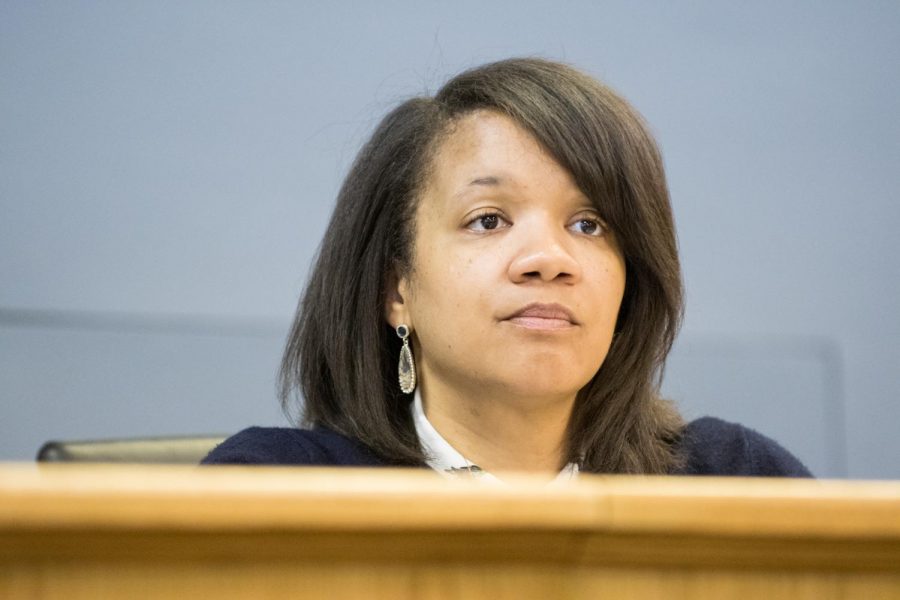Reparations subcommittee evaluates program for black homebuyers
Daily file photo by Colin Boyle
Ald. Robin Rue Simmons (5th). Simmons discussed plans to boost black homeownership during Friday’s reparations subcommittee meeting.
May 17, 2020
Evanston officials considered a program that would encourage black homeownership at a Friday reparations subcommittee meeting.
Still in its initial stages of development, the program would provide $10,000 to black home buyers in West Evanston who have a mortgage pre-approval and a letter of intent to close on a property.
Ald. Robin Rue Simmons (5th) said the program is needed to offset past displacement. Over the past two decades, Evanston’s black population has dropped from 22 to 16 percent, according to Census Bureau data.
But city clerk Devon Reid voiced concerns.
“It’s almost as if we’re redlining again, to say we’re only going to support people who are buying a house in the West End,” he said. “If we’re going to target this, they should be able to buy a house anywhere within the city limits.”
In response, Rue Simmons said the program focuses on addressing damage specific to the black homeowner community in West Evanston. According to the 2010 Census, 46 percent of the city’s total black population lives on the west side. This area’s residents in particular have suffered from poor housing policies and predatory loans, she said.
Rue Simmons said the program should attract homebuyers who intend to stay and invest in the community. She said the program should include language regarding an expected length of residency, so individuals do not accept the payments and then “flip” their houses.
She emphasized maintaining a grant-based structure. She added that loan-based programs in the past have had too many strings attached and brought discomfort to the community.
However, deputy city attorney Nicholas Cummings said the subcommittee should still consider a forgivable loan-based program, which would not require repayment if the recipient met certain conditions. He said recipients would be required to report grants as income.
Cummings said a loan-based program could be designed with few conditions or strings attached. He said the loan could include a required minimum number of years lived in the home, but also provide flexibility for individuals who need to refinance their homes or have other outstanding circumstances.
“(A forgivable loan is) not an encumbrance upon people,” Cummings said. “If you’re actually trying to build homeownership in the city, you don’t want people to be buying the home and vacating it in three years.”
Alongside the homebuyer assistance program, the subcommittee considered plans to promote homebuyer preservation and property renovation. The subcommittee also discussed a potential property tax distress program, a property and foreclosure counseling program and a financial literacy program for black residents.
Due to the pandemic, the city could lose over $10 million in revenue in the next year. At an April City Council meeting, the city considered delaying funding the reparations program to the start of 2021.
But Rue Simmons said COVID-19 shows reparations, which would be supported by a recreational cannabis sales tax and outside donations, are more essential than ever.
“We have to be moving forward with policy that supports these vulnerable communities, and we need to continue forward with reparations,” Rue Simmons said. “The damages, disparities and the opportunities for redress still exist, and they’re even highlighted more so because of the new trauma to the community of COVID-19.”
Email: [email protected]
Twitter: @maia_spoto
RELATED STORIES:
— Evanston outlines plan for reparations
— Aldermen establish historic fund for local reparations


